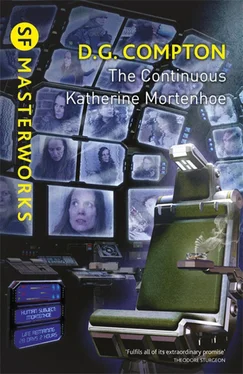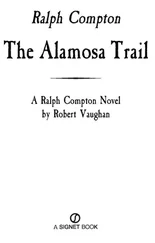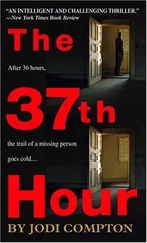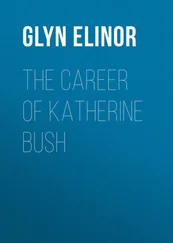The scene was developing, and I just wasn’t worth that sort of fuss. So I turned my swank-wagon and drove back the way I’d come. There wasn’t even a cheer. Behind me the sitters simply got up and started walking again.
The next junction I tried was similarly blocked. And the next. And the next. Four abreast, quiet, with a placard to every fifth rank, the marchers passed the long hood of my car, shouting occasionally, tiredly, but mostly just hating silently as they trudged. Since the order forbidding marches in the center precincts, the Civil Liberties people had sworn to lay a solid cordon around the entire city. A hundred miles of marchers, in orderly fours. And nobody had believed it possible. We lived with marches much as we lived with winter rain. They were inconvenient, even debilitating, but never downright impossible to cope with.
Now however, as I watched the weary, varied, relentless procession stretching as far as I could see in either direction along the bright suburban streets, always changing but always the same, I wondered. A hundred miles of marchers was no longer vulgar rhetoric. It was people.
At the next blocked junction I saw an NTV camera team at work. I sighed. If I’d told Vincent I was coming out this way he could have saved a lot of company money. I turned the car yet again and worked my way farther westward. By now I was angry, otherwise I’d have gone back to base and borrowed a small gray car from the pool — though even these were not always getting through if the marchers didn’t like the drivers’ faces. It was a ridiculous situation. Whatever the particular grievance — I’d long ago lost count — it didn’t justify this sort of petty, arbitrary tyranny.
At this, my sixth attempt to get out of the city, I decided to stand no further nonsense. I was no manipulator (oppressor had long ago been replaced in their limited invective), I had even sometimes in the past been on their side: if they wanted to get their ribs kicked in on my account, that was their affair. I tucked the car close in behind a milk truck that was bound to be let through, and pressed on. If they tried to get in between me and it they’d have to get out again pretty damn sharp.
I set out the reasoning of the previous paragraph with no comment. It was easy to arrive at and impossible afterward to forget. Given this reasoning it was right and proper, almost inevitable, that I should run the big front wheels of my car over two of the marchers before I could stop. If they wanted to get their lives crushed out on my account, that was their affair.
I sat very still in the curious shuffling silence of possibly a thousand feet. The man under my car (he was elderly, if that makes it better or worse) began to groan. The woman under the other wing pressing was quite quiet. On my own behalf let it be said that I was not so much afraid of the marchers as horrified, too little and too late, at what I had done.
Looking back on it, I know that the silence, and then the groaning in the silence, must have existed only in my mind. Where it exists still. For surely those sitting in the road, those crowding in front of me, those whom I did not run over, must have made some instant objection? But it is still the shuffling silence, and then the groaning, that remain with me far more vividly than the anger that followed. They tore at the car, at me. They screamed and pounded. It was blank stupidity, not a wish for expiation, that stopped me raising the windows, erecting the hood. I gained the impression that one of the men tearing at me was the dead woman’s son.
After the interminable length of the silence which never happened, it seemed no time at all before I was rescued by the police. Time to think briefly of Vincent’s investment and the insurance that would cover it, and of how I would ever face Tracey and Roddie Two if I survived, and then the police were beating away the hands, and the placard poles, and the devouring faces. The first policeman to reach me glared as wildly as any of those he was beating away. ‘Bastard,’ he shouted. ‘Murdering bastard.’
The car door was already open, and he dragged me out onto the ground. The marchers stood back, watching him kick me. It was they who were kicking me, kicking him even, for all the kicking they had ever received. I curled up tight, protecting my balls, my belly, my eyes. I was possibly two feet away from the body of the woman I had killed. For some reason the toe of the policeman’s boot hardly hurt. Then other policemen arrived, and hauled me to my feet. Under cover of my shouting and swearing one of them got his punch-happy face down to my ear. ‘You can forget Judge’s fucking Rules,’ he told me, ‘if you want us to get you out of this alive.’
As they manhandled me away, wrenching my arm behind my back and kicking me as they went, I’ll swear the man under my car was still groaning, unnoticed by his avengers. He groans still, when my night is particularly dark.
The police had set up their mobile headquarters van in a side street. They tossed me in, and slammed the door. There was a gray steel desk, and behind it a control panel with switches, four closed-circuit TV screens, and a pornographic calendar. On one of the screens I recognized my car, on its side now, its radiator kicked in. It was suddenly very quiet, apart from a walkie-talkie’s turned-down croaking. Outside I heard distantly the siren of an approaching ambulance. I was helped to my feet.
‘May I see your wallpaper, sir? Driving license, insurance certificate, mobility permit, civil offenses card? We have to be sure you exist.’
The gray-faced, gray-natured police inspector was undoubtedly making a joke. I handed over my wallet and let him help himself. My face was bleeding in half a dozen places. I felt battered as much by the crowd’s hatred as by their hands. The inspector sorted through my documents. ‘Ah yes… Even with the beard, my sergeant thought he knew you. Quite a fan, I gather.’
If he expected something, a professional simper, he didn’t get it. I stood and stared at him, the fear and sweat on me cooling.
‘Well now, sir, we can’t have this, can we?’
He was entitled to ham, entitled to his fun. ‘May I sit down?’ I asked.
He nodded to the sergeant, who left his control panel, came around the desk, and moved a chair, holding it for me like a waiter till I was comfortably settled.
‘We can’t have honest, celebrated citizens obstructed about their lawful occasions. Police College Handbook, part one, chapter one, page one.’
He leaned down and got a bottle of vodka and two glasses from somewhere behind his desk. ‘A present from an admirer,’ he said, and half-filled both glasses. The last time I’d been to a cop movie there’d been this line, ‘Not now, thank you, sir. I’m on duty.’ The sergeant gave me one of the glasses, closed my fingers about it for me.
‘Honestly,’ I said, ‘I never saw them. One minute I was close behind the milk truck. The next, I was…’
I ran out of confessional steam. The inspector emptied his glass and refilled it. ‘It happens to the best of us,’ he said. I sipped my own drink. Either he was being very funny indeed, or I didn’t like the direction the interview was taking.
A red light flashed on the control board. The sergeant hurried back to it, put on earphones, and began giving quiet orders into a microphone. On one of the TV screens I could see an ambulance nudging through the crowd toward my car. ‘I ran over two people, Inspector. A man and a woman. The woman was dead. I’m sure of it.’
‘A complication, certainly. But they don’t die easily, these people.’
‘A complication?’
‘Inquest, coroner’s report, you know the sort of thing. Nothing we can’t handle, mind. But things would be easier without an actual mortality.’
Читать дальше












